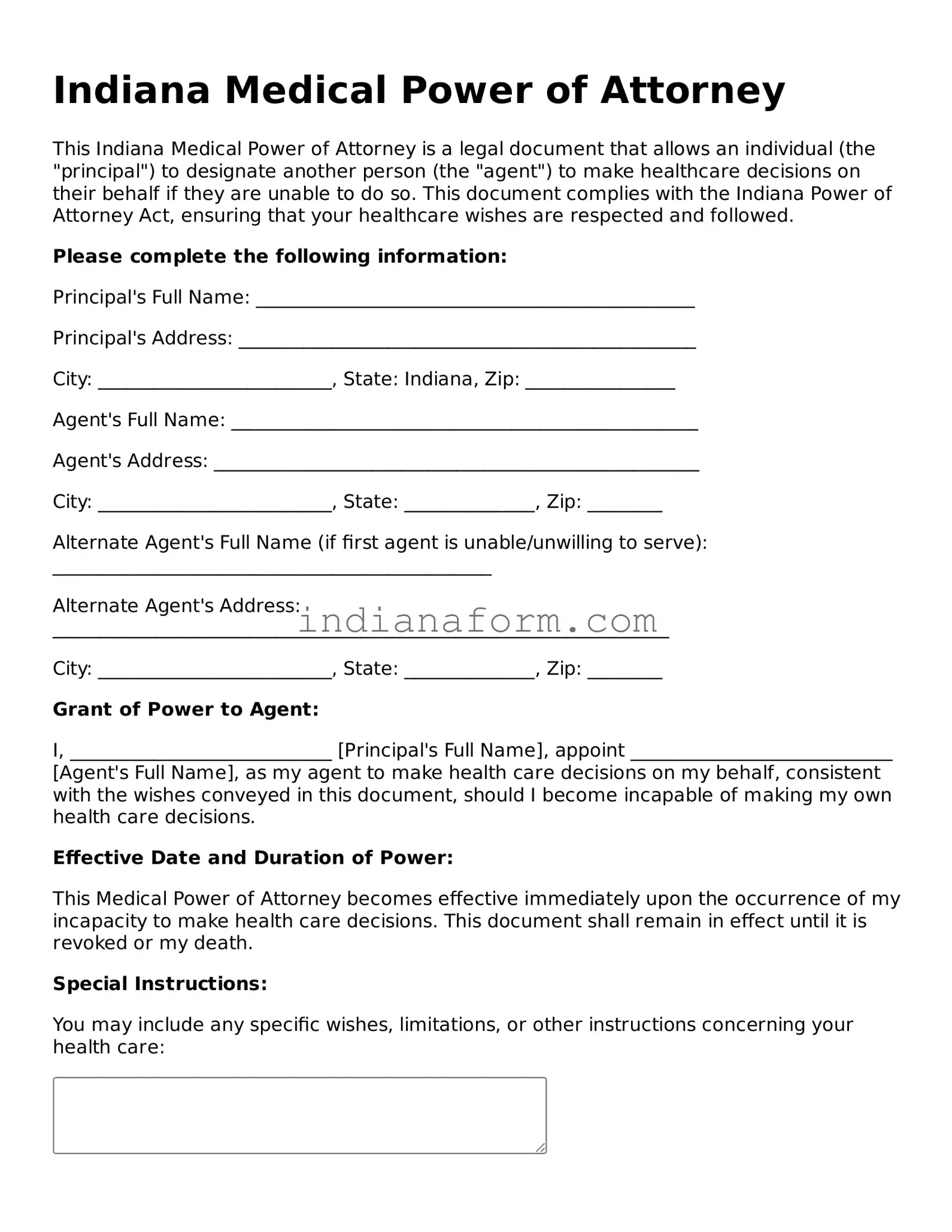Indiana Medical Power of Attorney
This Indiana Medical Power of Attorney is a legal document that allows an individual (the "principal") to designate another person (the "agent") to make healthcare decisions on their behalf if they are unable to do so. This document complies with the Indiana Power of Attorney Act, ensuring that your healthcare wishes are respected and followed.
Please complete the following information:
Principal's Full Name: _______________________________________________
Principal's Address: _________________________________________________
City: _________________________, State: Indiana, Zip: ________________
Agent's Full Name: __________________________________________________
Agent's Address: ____________________________________________________
City: _________________________, State: ______________, Zip: ________
Alternate Agent's Full Name (if first agent is unable/unwilling to serve): _______________________________________________
Alternate Agent's Address: __________________________________________________________________
City: _________________________, State: ______________, Zip: ________
Grant of Power to Agent:
I, ____________________________ [Principal's Full Name], appoint ____________________________ [Agent's Full Name], as my agent to make health care decisions on my behalf, consistent with the wishes conveyed in this document, should I become incapable of making my own health care decisions.
Effective Date and Duration of Power:
This Medical Power of Attorney becomes effective immediately upon the occurrence of my incapacity to make health care decisions. This document shall remain in effect until it is revoked or my death.
Special Instructions:
You may include any specific wishes, limitations, or other instructions concerning your health care:
Signatures:
This document must be signed by the principal, in the presence of a notary public and two (2) adult witnesses, who are not the appointed agent or relative of the principal.
Principal's Signature: ___________________________ Date: _______________
Agent's Signature: _______________________________ Date: _______________
Alternate Agent's Signature (If applicable): _________________________ Date: _______________
Witness 1 Signature: _____________________________ Date: _______________
Witness 2 Signature: _____________________________ Date: _______________
Notary Public Signature: __________________________ Date: _______________, My Commission Expires: ________
Annual Review Reminder:
It is recommended to review this document annually or upon any significant change in health status or healthcare preferences.

